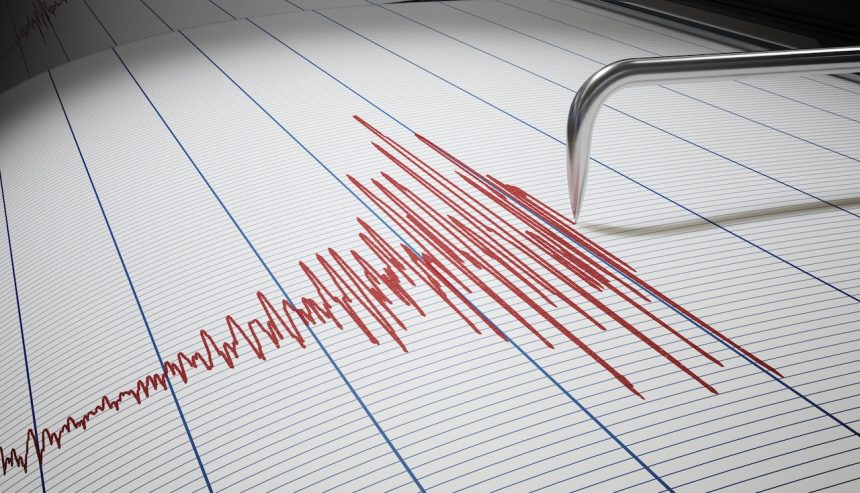Earthquakes are one of nature’s most destructive forces and can happen anytime throughout the United States. They usually occur due to the breaking and shifting of underground rock, releasing accumulated energy. Since they strike without warning and can lead to significant earthquake property damage, all property owners must follow an earthquake safety checklist.
In this blog, we will discuss what you should do before, during, and after an earthquake to stay safe and provide tips on how to determine if your home is earthquake-resistant. Given the unpredictable nature of earthquakes and their potential to cause significant harm, it is crucial to be prepared and take necessary precautions to protect yourself and your loved ones.
Preparing for Earthquake Property Damage
How to prepare for an earthquake:
- Make an emergency kit that can last at least three days. The kit should include water, non-perishable food, and other essential items.
- Create a family emergency plan. Establish a meeting place outside the home to ensure that everyone in the family knows where to meet each other should you get separated.
- Practice the “Drop, Cover, and Hold On” drill:
- Locate a sturdy piece of furniture, a corner, or an interior wall that you can quickly reach.
- Get under the furniture or go near the corner or interior wall.
- Drop to the ground and cover your head and neck with your arms.
- Hold on to any sturdy covering and wait until the earthquake stops.
- Practice often to be able to react quickly.
- Check for loose items in your home that could fall, such as light fixtures, bookshelves, or mirrors. Secure these items firmly so they don’t cause injuries during earthquakes.
- Have your home or property inspected to ensure it’s resistant to earthquake property damage. Below, find out what criteria buildings should meet to be earthquake-resistant.

A home inspection can help you find potential problems that worsen earthquake property damage.
How to stay safe during an earthquake:
- If you’re inside a building, perform the “Drop, Cover, and Hold On” technique, as explained above.
- Never go outside, as debris from property damage might fall on you on your way out.
- Stay away from windows, glass, doors, and any objects that might fall, such as light fixtures.
- Contrary to popular belief, you should not get in a doorway since it doesn’t provide enough protection from flying objects. You might also fall and get injured if you stay in a doorway.
- If you are outside, move away from buildings, streetlights, and utility wires, then drop, cover, and hold on, as described above. In the city, you might need to get inside a building to stay safe.
- If you are in a moving vehicle, stop it safely, but avoid parking near trees or buildings. Stay inside the car until the shaking stops.

Safely park your vehicle during an earthquake, but avoid parking near trees or buildings if possible.
When the shaking stops:
- If you are inside a building, locate a safe exit. Get out and stay away from damaged structures.
- If you are trapped, don’t move. Use your cell phone if you have one with you. Wait for rescuers to come for you. Whistle or tap on a pipe or wall to help them locate you.
- If you are in a car, drive carefully, and avoid damaged roads or bridges.
Is your house resistant to earthquake property damage?
- Any property owner should ensure their home and other buildings they spend time in are safe during earthquakes and resistant to earthquake damage.
- Depending on when and how it was designed and built, the structure you live in may have weaknesses that make it more vulnerable to earthquakes, such as:
- The structure is not anchored to its foundation or has weak crawlspace walls.
- The pier-and-post foundations are weak.
- The masonry walls or foundations are not reinforced.
- Get professional help to assess the building’s structure. Then, take steps to install nonstructural solutions, including foundation bolting, cripple wall bracing, and reinforced chimneys.
- If you live in a mobile home, consider installing an earthquake-resistant bracing system.
- Those who live in a rented house should ask their landlord or property manager to make the necessary improvements to make the building safer.
- If you are building or buying a home, ensure that it complies with the seismic provisions of your local building code.
- Ensure that plumbers have installed flexible connectors on all gas appliances and repaired defective electrical wiring and leaky gas connections, as these are potential fire risks. Hire appropriate professional help—don’t work with gas or electrical lines yourself.
- Check with your local emergency management office and ask if there are any volunteer teams in your community to help you with these assessments.

Run through a checklist, such as this one, and verify if your home is resistant to earthquake property damage.
Stay Grounded with PuroClean of Wayne and Our Property Damage Restoration Services!
Are you dealing with unexpected earthquake property damage, including any damage caused by fire, water, or mold? Don’t panic! PuroClean of Wayne is here to help! Our team of certified technicians is available 24/7 to provide efficient and effective restoration services for your residential or commercial property. From water extraction and structural drying to smoke and soot removal, we have the experience and expertise to handle any disaster. Contact us today at (973) 988-2121 to schedule a free assessment, and let us restore your property to its pre-loss condition!



 PuroClean of Wayne
PuroClean of Wayne